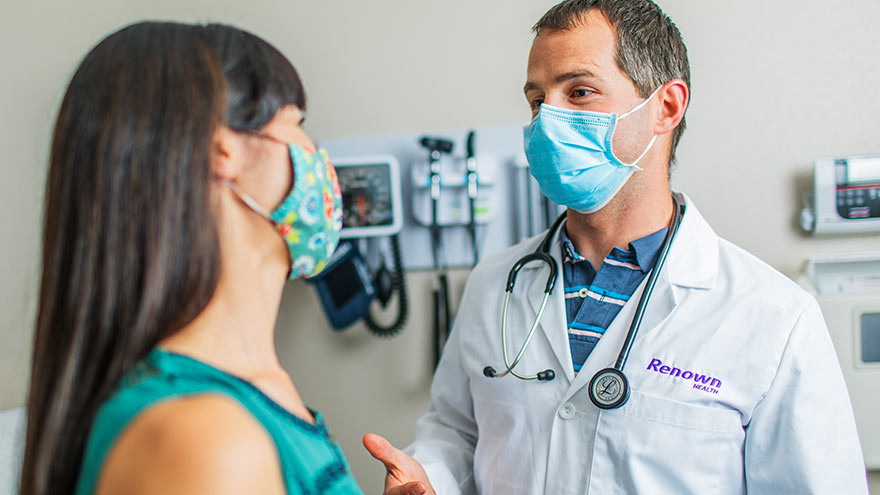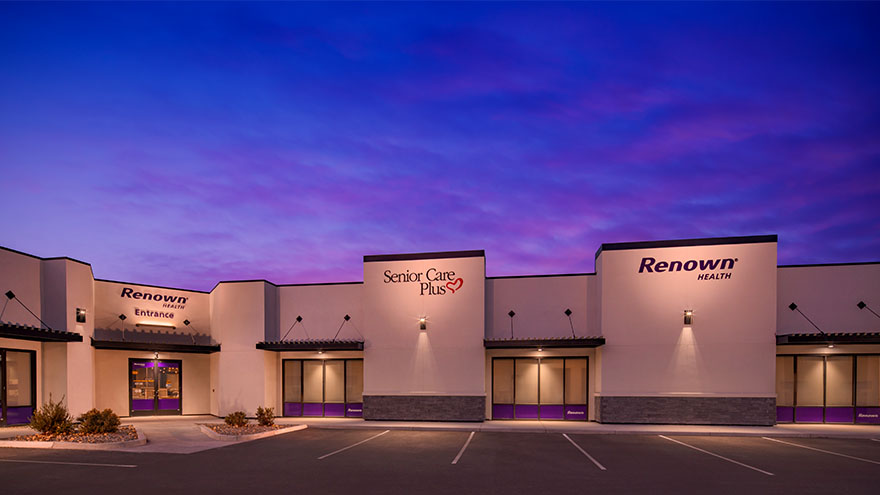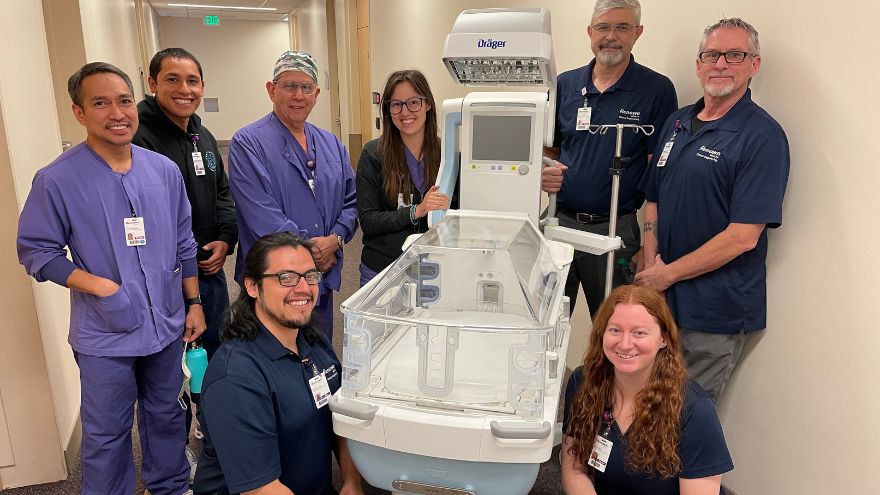Search
-
Copays vs. Coinsurance: Know the Difference
Health insurance is complicated, but you don't have to figure it out alone. Understanding terms and definitions is important when comparing health insurance plans. When you know more about health insurance, it can be much easier to make the right choice for you and your family. A common question when it comes to health insurance is, "Who pays for what?" Health insurance plans are very diverse and depending on your plan, you can have different types of cost-sharing: the cost of a medical visit or procedure an insured person shares with their insurance company. Two common examples of cost-sharing are copayments and coinsurance. You've likely heard both terms, but what are they and how are they different? Copayments Copayments (or copays) are typically a fixed dollar amount the insured person pays for their visit or procedure. They are a standard part of many health insurance plans and are usually collected for services like doctor visits or prescription drugs. For example: You go to the doctor because you are feeling sick. Your insurance policy states that you have a $20 copay for doctor office visits. You pay your $20 copay at the time of service and see the doctor. Coinsurance This is typically a percentage of the total cost of a visit or procedure. Like copays, coinsurance is a standard form of cost-sharing found in many insurance plans. For example: After a fall, you require crutches while you heal. Your coinsurance for durable medical equipment, like crutches, is 20% of the total cost. The crutches cost $50, so your insurance company will pay $40, or 80%, of the total cost. You will be billed $10 for your 20% coinsurance.
-
Health Insurance Terms Explained: Deductible and Out-of-Pocket Maximum
Health insurance might be one of the most complicated purchases you will make throughout your life, so it is important to understand the terms and definitions insurance companies use. Keep these in mind as you are comparing health insurance plan options to choose the right plan for you and make the most of your health insurance benefits. One area of health insurance that can cause confusion is the difference between a plan's deductible and out-of-pocket maximum. They both represent points at which the insurance company starts paying for covered services, but what are they and how do they work? What is a deductible? A deductible is the dollar amount you pay to healthcare providers for covered services each year before insurance pays for services, other than preventive care. After you pay your deductible, you usually pay only a copayment (copay) or coinsurance for covered services. Your insurance company pays the rest. Generally, plans with lower monthly premiums have higher deductibles. Plans with higher monthly premiums usually have lower deductibles. What is the out-of-pocket maximum? An out-of-pocket maximum is the most you or your family will pay for covered services in a calendar year. It combines deductibles and cost-sharing costs (coinsurance and copays). The out-of-pocket maximum does not include costs you paid for insurance premiums, costs for not-covered services or services received out-of-network. Here's an example: You get into an accident and go to the emergency room. Your insurance policy has a $1,000 deductible and an out-of-pocket maximum of $4,500. You pay the $1,000 deductible to the hospital before your insurance company will pay for any of the covered services you need. If you received services at the hospital that exceed $1,000, the insurance company will pay the covered charges because you have met your deductible for the year. The $1,000 you paid goes toward your out-of-pocket maximum, leaving you with $3,500 left to pay on copays and coinsurance for the rest of the calendar year. If you need services at the emergency room or any other covered services in the future, you will still have to pay the copay or coinsurance amount included in your policy, which goes toward your out-of-pocket maximum. If you reach your out-of-pocket maximum, you will no longer pay copays or coinsurance and your insurance will pay for all of the covered services you require for the rest of the calendar year.
Read More About Health Insurance Terms Explained: Deductible and Out-of-Pocket Maximum
-
Understanding "In-Network" and "Out-of-Network" Providers
When finding a provider to receive your health services, you've probably heard the terms "in-network" and "out-of-network" when it comes to your health plan. But what do these terms mean for a patient? And why should you be aware if a provider is out-of-network? What does it mean when a provider is "in-network" with a health plan? A provider is a person or facility that provides healthcare. When a provider is in-network it means there is a contractual agreement with that health plan regarding the rates for services. The provider will accept negotiated rates for services from the insurance. This means a patient will typically pay less for medical services received and is less likely to receive surprise bills. What does it mean when a provider is "out-of-network" with a health plan? Providers that are out-of-network are those that do not participate in that health plan's network. The provider is not contracted with the health insurance plan to accepted negotiated rates. This mean that patients will typically pay more or the full amount for the service they receive. Why should patients see in-network providers? Seeing an in-network provider for medical services can significantly reduce your medical expenses. Remember that in-network providers have a contractual agreement for negotiated rates with the health plan, so they cannot charge you more than that negotiated rate for a service. Seeing an in-network provider will always ensure any costs you do incur (copays or co-insurance) are applied to your health plan's deductible and out-of-pocket maximum (out-of-network costs don't apply to these amounts). To find the amounts you will pay for specific services, you can check your health insurance plan's Summary of Benefits. What is the best way to find which providers are in-network with a patient's health plan? Most health insurance companies offer multiple ways to find if a provider is in-network. To find the most accurate benefit information from your health plan, you can: Call their Customer Service department Check their website for their online provider directories If offered, check your online member portal.
Read More About Understanding "In-Network" and "Out-of-Network" Providers
-
Improving the Way we Deliver Quality Rural Healthcare
One of the most pressing issues in modern medicine is the need to improve rural healthcare. This challenge hits particularly close to home, as Renown Health is the only provider covering 100,000 square miles in northern Nevada, an area that’s mostly rural. People in rural areas suffer from chronic diseases such as heart disease, cancer and respiratory disease, at higher rates than the general population. One of the largest contributors to these health disparities is a lack of access to health services. Many rural communities have fewer providers and care facilities. This forces residents to travel farther to receive preventive care and medical treatment. We must identify ways to better support the health needs of the millions of Americans who live in rural communities. Ideas for improving rural healthcare Health systems must identify innovative ways to leverage existing resources and new technologies to care for patients in these communities. For example, telehealth can help diminish a person’s need to travel long distances to receive specialty care. Similarly, online classes can help educate patients about preventive behaviors. Remote monitoring technology also allows patients to track their health conditions from home. Additionally, we can address physician shortages by empowering health professionals such as nurse practitioners, physician assistants and technologists to care for patients. These providers receive excellent training and have demonstrated success in improving health outcomes. Renown Health cares for people from diverse backgrounds and we are dedicated to caring for patients in every community we serve. Renown Telehealth We’re leading the region in using video conferencing technology to provide the best care possible – no matter where you are. Renown Telehealth is telemedicine that gives you access to top-level care and better outcomes with less stress and fewer travel costs. Learn More
Read More About Improving the Way we Deliver Quality Rural Healthcare
-
3 Ways to Switch to a Medicaid Plan Accepted at Renown
Medicaid plays a significant role in our health care system and is the nation’s public health insurance program. In addition, this program is the predominant source of long-term care coverage for Americans. Renown Health is contracted with two Medicaid plans: Molina and Anthem. If you currently have a different plan but want to change to one that Renown accepts, you can request to change plans during the open enrollment period from January 1 to March 31. Request to change your Medicaid plan in one of three ways: Request a change to your plan, or managed care organization (MCO), by reviewing the available MCO plans online at bit.ly/MCOPlansNV and filling out the form on the webpage. Email Nevada Medicaid to ask for a plan change and include your name, Medicaid ID and the names and Medicaid IDs of any dependents in your home: MCORedistribution@dhcfp.nv.gov. Call your local Medicaid district office at 775-687-1900 (northern Nevada) or 702-668-4200 (southern Nevada) to ask about changing your plan. For more information about the Medicaid plans accepted at Renown Health, please visit: Anthem Molina Healthcare Renown Health accepts most insurances, but please visit the link below for the full list. Click here for all accepted plans
Read More About 3 Ways to Switch to a Medicaid Plan Accepted at Renown
-
Health Insurance Terms Explained: HMO, EPO and PPO Plans
When it comes to purchasing a health insurance plan, you’ve probably heard of the two plan types, HMO and PPO, but what exactly do these terms mean, and what is an EPO? Let’s learn more about these plan types and how you can choose the plan that meets your needs. What is an HMO Plan? HMO stands for “Health Maintenance Organization.” HMO plans contract with doctors and hospitals creating a network to provide health services for members in a specific area at lower rates, while also meeting quality standards. HMO plans require you to select a primary care physician (PCP) and usually require a referral from your PCP to see a specialist or to have certain tests done. If you choose to see a provider outside of the HMO’s network, the plan will not cover those services and you will be responsible for all charges. What is an EPO Plan? An EPO means “Exclusive Provider Organization.” This plan provides members with the opportunity to choose in-network providers within a broader network and to visit specialists without a referral from their primary care doctor. EPO plans offer a larger network than an HMO plan and typically do not have the out-of-network benefits of PPO plans. Generally, EPO plans cost more than an HMO, but less than a PPO. What is a PPO Plan? PPO stands for “Preferred Provider Organization.” PPO plans are often more flexible when it comes to choosing a doctor or a hospital. These plans still include a network of providers, but there are fewer restrictions on the providers you choose. PPO plans do not require you to select a primary care physician (PCP), giving you a broader network of providers. So, which plan should you choose? Each plan type has different benefits, so it depends on your health needs when choosing the right plan type. If you are looking for flexibility when choosing providers and locations, a PPO plan may better fit your needs. An EPO plan may be a better option if you travel often and want the flexibility of a larger network, but don’t necessarily need out-of-network benefits. If you regularly seek care in a certain geographic area and are looking for a health insurance plan at a lower price point, consider an HMO plan. To keep costs low, insurance carriers contract with providers and partner in plan members’ health to ensure quality care at the lowest cost. Whether you choose an HMO, EPO or PPO option, partnering with your health insurance carrier and your healthcare provider will help you receive the best care while controlling your out-of-pocket costs. Get the most out of your health insurance benefits! Established in 1988, Hometown Health is the insurance division of Renown Health and is northern Nevada’s largest and only locally-owned, not-for-profit insurance company providing wide-ranging medical coverage and great customer service to members.
Read More About Health Insurance Terms Explained: HMO, EPO and PPO Plans
-
What is Care Coordination for Senior Care Plus Members?
Cost-saving isn’t the only reason to enroll in a Medicare Advantage Plan. One of the main reasons Medicare beneficiaries in Nevada join a Senior Care Plus Medicare Advantage Plan is for the care coordination services. The Senior Care Plus Care Coordination team helps members navigate what can be a complex healthcare system. Care coordination is a popular and extremely important service for members because keeping members healthy is the number one goal. One way they help reach this goal is to encourage members to participate in a no-cost, comprehensive health assessment. At this Quick Start Health Assessment, members meet with a geriatric specialist – a provider who specializes in the care of seniors – to discuss the 4 Ms: Mentation – Thinking, memory and mental health Medications – Understanding your medication Mobility – Staying physically active What Matters to You – Let your provider know what is important to you – examples could be family, health and independence The results of this detailed visit are then shared with the member’s primary care provider, so a customized care plan can be developed. This is a free service for Senior Care Plus members, along with an annual wellness visit and an annual physical exam. Care Team Approach – Laying the Foundation to Improve Health Health assessments and annual visits are offered so Renown Health providers can build relationships to improve care. This approach, also known as the Building Relationships to Improve Care or BRIC Model, is the care model used across Renown Health. “What’s special about this care model is that it really puts our patients at the center of their care,” says Savannah Gonsalves, a registered nurse with Senior Care Plus. “Members have their providers and nurses, Senior Care Plus personal assistants, case managers, and within the BRIC Model, they’re all talking to one another and putting the focus on the patient to meet needs.” Personal Assistants – A Unique Connection to Each Member A team of personal assistants is available to help members coordinate care by: Scheduling a member’s appointments Answering a member’s benefits questions Helping navigate care – these are experts in both health insurance and healthcare Answering questions about medications Working with providers to coordinate a member’s care The Senior Care Plus personal assistants are one of the most popular services that the Medicare Advantage plan offers. Each personal assistant has a direct phone line so members can call them to ask questions. “After my hip surgery my personal assistant, Megan checked in on me every day,” recalls Janelle, a Senior Care Plus member. “She made sure that I was doing alright and that I didn’t need anything. She just let me know that she was there for me.” To Learn More Senior Care Plus is the largest Medicare Advantage Plan in northern Nevada. They offer $0 plans with low co-pays with access to Renown Health and Teladoc Virtual Visits that cover you nationwide. To learn more about Medicare Advantage plans and to see if you qualify, visit SeniorCarePlus.com or call 775-982-3158 to speak to an enrollment specialist.
Read More About What is Care Coordination for Senior Care Plus Members?
-
5 Benefits of Medicare Advantage Plans
If you are approaching age 65, you may be starting to think about the government benefits you will soon qualify for. For example, your healthcare option to elect between Original Medicare or a Medicare Advantage plan. What’s the difference? Original Medicare comes in two parts: Part A and Part B. Part A covers a portion of hospitalization expenses, and Part B applies to doctor visits and medical expenses, such as lab tests and some preventative screenings. A Medicare Advantage plan, also known as Part C, is an “all-in-one” alternative to Original Medicare. These “bundled” plans include the benefits of Part A, Part B and Part D (prescription drugs). Some people choose a Medicare Advantage Plans over Original Medicare because these plans offer coverage like vision, hearing, dental and more. Saves You Money First and foremost, Medicare Advantage Plans save Medicare members money –and not just a little bit of money, but a lot of money. Original Medicare only pays 80% of the cost of medical care – the Medicare beneficiary is responsible for the other 20%. A Medicare Advantage Plan is different. The Medicare Beneficiary is only responsible for a small copay, typically less than 20% of a doctor visit or procedure. More importantly, Medicare Advantage Plans have a maximum out-of-pocket amount, meaning that once you reach the limit, the Plan pays 100% of all medical services. That alone can save thousands of dollars per year – particularly if there is a hospitalization involved. Dental, Vision and Hearing Coverage What sets Medicare Advantage plans apart is the additional benefits provided that Original Medicare doesn’t cover. These benefits include dental coverage, vision coverage, hearing exams and hearing aid coverage. None of these important health care benefits are included in Original Medicare. Also, most Medicare Advantage Plans include prescription drug coverage at no additional cost, while individuals with Original Medicare need to sign-up and pay extra for Part D prescription drug coverage. Medicare Advantage Plans offer more benefits than Original Medicare and they help members save on their health care costs. Focus on Accessibility, Wellness and Preventative Health Accessible healthcare coverage is key to staying on top of your health. To join a Medicare Advantage Plan you must have Part A and Part B coverage and live in the plan’s service area. It is important to remember that Original Medicare is only valid in the United States. Fortunately, many Medicare Advantage Plans offer worldwide emergency coverage. Another important healthcare consideration to keep in mind is Medicare Advantage Plans focus on your overall well-being. They offer preventative and wellness-related benefits at no cost to you. This includes important benefits like free over-the-counter medicines and free gym memberships. You won’t find those types of benefits with Original Medicare. Medicare Supplement Plans (Medigap) Some people confuse a Medicare Supplement Plan, also known as a Medigap Plan, with Medicare Advantage Plans. They are different and the biggest difference is Medicare Supplement plans come with ever-increasing premiums because they are based on your age. This means the cost of these plans increase every year. Plus, they don’t offer any supplemental benefit coverage like vision, dental or hearing. That’s not the case with a Medicare Advantage Plan. In many cases, there is no monthly premium and you receive all manner of supplemental benefits. These benefit-rich, zero-dollar premium Medicare Advantage plans are enticing people to say goodbye to pricy Medicare supplement plans and hello to Medicare Advantage Plans. Don’t worry, if you join a Medicare Advantage Plan for the first time and you aren’t happy with the plan, you’ll have special rights under federal law to buy a Medigap policy and a Medicare drug plan if you return to Original Medicare within 12 months of joining the Medicare Advantage Plan. The Flexibility to Change Your Mind A common misconception about Medicare Advantage Plans is that when you join, you are still on Medicare and are not giving up your Medicare coverage. Medicare Advantage Plans are considered “Medicare Part C.” This means they combine your Medicare Part A (hospital coverage), Part B (doctor’s coverage) and Part D (prescription drug coverage) into one convenient package that costs less and provides more. You can only join, switch or drop a Medicare Advantage Plan during the enrollment periods: Initial Enrollment Period: When you first become eligible for Medicare, you can sign up during your Initial Enrollment Period. For many, this is the seven-month period that begins three months before the month you turn 65, includes the month you turn 65, and ends three months after the month you turn 65. General Enrollment Period: If you have Part A coverage and you get Part B for the first time during this period (between January 1 - March 31 each year), you can also join a Medicare Advantage Plan. Your coverage may not start until July 1. Annual Election Period: Between October 15 and December 7, anyone with Medicare can join, switch or drop a Medicare Advantage Plan. Your coverage will begin on January 1 (as long as the plan receives your request by December 7). Medicare Advantage Plans have been around for more than 25 years and continue to grow in popularity. In some parts of the country, more than half of all Medicare beneficiaries are enrolled in a Medicare Advantage Plan. Only 40% are enrolled here in Nevada, but that number is growing every year.
-
A Facility Designed with Seniors in Mind
Did you know that members of Senior Care Plus, the largest Medicare Advantage Plan in northern Nevada, have access to an exclusive, senior-focused Renown Health primary care office right here in Reno? The facility – and the Medicare plan itself – are both designed with seniors in mind; this includes specialty staff, longer appointment times, on-site services, supportive furniture and more. 4 Benefits of an Exclusive Senior Care Plus Facility Centrally Located with Senior-Focused Staff The Senior Care Plus facility, located on Del Monte Lane, is only open to members of Senior Care Plus. This exclusive access means that the bilingual staff – including doctors, medical assistants, nurses and personal assistants – works daily with aging health needs. On-Site Services and Enrollment Specialists The Senior Care Plus providers understand that seniors often require complex care management and geriatric-focused services. That is why this location offers on-site lab draws, saving travel time and stress. Another essential service this location offers is longer appointment times, ensuring members don’t feel rushed when discussing their health needs with providers. Another perk of the Del Monte location – on-site enrollment specialists. Members, and potential members, can stop by this location on weekdays between 9 a.m. and 4 p.m. to have their SCP-related questions answered. Furniture Designed with Seniors in Mind Senior Care Plus makes a doctor visit as stress-free as possible. The office has furniture that makes each visit more comfortable for members. All of the office chairs have armrests, so seniors can easily get in and out of them. Also helpful are the exam room chairs with remote controls for reclining the chair and lifting the patient’s legs. This makes exams, such as a diabetic foot exam, less of a strain. Community Rooms Social connections are an important part of health. That is why the Del Monte Lane office has community rooms used for informative seminars and as a gathering place for members to mingle. The seminars focus on many interesting topics for older adults, such as diabetes, COPD, asthma, weight loss, nutrition, yoga and chair exercises.
-
3 Ways to Enroll in a Hometown Health Insurance Plan
Are you looking for health insurance coverage for the upcoming year? In that case, it's time to browse your options for an Individual or Family Plan. The Open Enrollment Period is now until Dec 15, 2022. So, if you're looking for coverage by Jan 1, 2023, you must enroll by Dec 15, 2022. 1. Get a Quote Online Suppose you don't qualify for a health insurance subsidy, no need to worry! You can still choose an individual and family health insurance plan from Hometown Health. Get a quote online by providing your location, the type of coverage you're looking for and your personal/family details. Once you've provided this information, you'll receive health plan options and pricing. And, if you find a plan you like, you can easily self-enroll online. Get Your Online Quote Today 2. Enroll Through the Nevada Health Link Hometown Health offers Individual and Family health insurance plans on Nevada's Healthcare Marketplace, the Nevada Health Link. Through Nevada Health Link, eligible Nevada consumers can shop for, compare and purchase quality and affordable health insurance plans with ease. Nevada Health Link is the only health insurance resource that can provide eligible candidates with federal tax credits and subsidies to help cover the cost of your health insurance. Use Hometown Health's Insurance Subsidy Federal Poverty Level Calculator to see if you qualify for a tax credit or subsidy. Enroll via Nevada Health Link 3. Work with a Health Insurance Broker Hometown Health is northern Nevada's local insurance provider and if you have questions about Individual and Family Plan insurance benefits, you’re in luck! Hometown Health partners with our local health insurance brokers who will work with you, typically at no cost, to help you understand health insurance plans and benefits and find the plan that is best for you. Need assistance finding a broker? Connect with our team by submitting the form below. They'll provide you with a list of our local broker partners. Find a Broker Near You
Read More About 3 Ways to Enroll in a Hometown Health Insurance Plan
-
3 Reasons to Choose a Senior Care Plus Health Plan
Senior Care Plus was Nevada’s first Medicare Advantage Plan and is still providing healthcare coverage to qualifying members in Washoe, Carson City, Clark & Nye Counties. Senior Care Plus is administered by Hometown Health, the insurance division of Renown Health. That relationship means Senior Care Plus is the only Medicare Advantage Plan supported and accepted at Renown. This preferred access to Renown is a great benefit for northern Nevadans. When it comes to healthcare coverage, there are three key factors to keep in mind. Here’s why a Senior Care Plus Medicare Advantage Plan is your best choice. 1. Cost Cost matters when searching for the right insurance plan. Of the four Senior Care Plus plans available to residents of Washoe County and Carson City, three offer a zero-dollar monthly premium and all of them offer zero-dollar primary care office visits. That means no out-of-pocket costs for you. Additionally, all Senior Care Plus plans have an annual out-of-pocket maximum. This means when you reach this amount, that’s all you will pay. Senior Care Plus pays all other covered medical benefits for the rest of the year. That’s the beauty of a Senior Care Plus Medicare Advantage Plan. 2. Size of Provider Network and Accessibility Although saving money is important, it’s more important to be able to see a doctor when and where you need to. Senior Care Plus members enjoy the most comprehensive healthcare provider network in the region. Thousands of providers, including many hard-to-find specialists, are in the Senior Care Plus network. Since Senior Care Plus is part of the Renown Health family, you get priority access to all that Renown has to offer, which you won’t find with any other Medicare Advantage Plan. 3. Coverage Medical coverage needs are personal and unique to every member. Understanding a plan’s benefits is essential when picking the best coverage for you. Of course, the important benefits you associate with a healthcare plan are included in all Senior Care Plus plans: urgent care visits, specialists’ visits, lab services, imaging — all with reasonable copays. What sets Senior Care Plus apart from the rest are the additional benefits for preventive health. For example, Senior Care Plus offers plans with a comprehensive dental benefit with first-dollar coverage, meaning you pay nothing until the benefit limit is reached. Senior Care Plus Medicare Advantage Plans also have a vision benefit allowing you to get a new pair of eyeglasses every year. In addition, these plans offer a fitness benefit, so you can join a local gym because Senior Care Plus wants to keep you healthy. Another interesting benefit is the over-the-counter benefit. If you choose the Renown Preferred Plan, you can select $50 worth of over-the-counter products such as: cold medicine, dental products, diabetic supplies, and digestive aides. Remember, that’s $50 worth of over-the-counter products four times per year. All on a plan that doesn’t cost a thing. Senior Care Plus Medicare Advantage Plans offer many added benefits tailored to Nevadans.
Read More About 3 Reasons to Choose a Senior Care Plus Health Plan
-
Department Spotlight: Clinical Engineering
Renown Health strongly supports and advocates for innovative medical technology. Our diverse lineup of medical equipment enables our care leaders to provide quality care to every patient. But what if a piece of technology breaks down? What happens when our care teams are ready for technological upgrades? Where do employees go when they have a question about a complicated piece of equipment? Enter the Clinical Engineering department. This sophisticated team is staffed with intelligent, science-minded individuals who are ready to jump in and help at any given second. From newborn incubators to robots that clean the hospital floors, these team members are the med-tech masters that keep our health system running. Equipment Experts Upon entering the Clinical Engineering department’s workshop, you are welcomed with an abundance of high-tech equipment undergoing repairs and upgrades. The department takes care of more than 26,000 pieces of equipment throughout the entire healthcare network, including the technologies at the University of Nevada, Reno School of Medicine, which they just took over this past year. To the average person, this may seem overwhelming; however, for this team, this is the exact environment they thrive in to make the technology magic happen. “I am motivated and engaged every day at work,” said Tony Martinez, Supervisor of Clinical Engineering for Renown. “Our department is fast-paced and rewarding, and that’s a big plus.” While some team members enter the department as equipment generalists, this team offers training to develop their skills on certain pieces of equipment, eventually becoming specialists. “Every month, we encourage our colleagues to undergo specific training on more delicate equipment,” said Tony. “Once we get to that point in their training, we assign different equipment to our team members every month. They pick up the experience very quickly.” As a Clinical Engineering Technician for Renown, Rylie Nickerson took advantage of the training and educational opportunities offered to her and is now a ventilator specialist especially for Renown’s neonatal intensive care unit (NICU). “Regardless of whether I’m working on ventilators or on another piece of equipment I’m assigned to, I’m always thinking about how I can help the patients, nurses and doctors,” said Rylie. Raul Hernandez, a Clinical Engineering Specialist for Renown, is the go-to person for anesthesia, heart-lung bypass, red cell saver and life support equipment. He embraces the fact that, regardless of whether you are a specialist or a generalist, there is no typical day working in this department. “Every day brings different challenges,” said Raul. “I really enjoy the mental exercises I do every day. They keep me grounded and focused.” On top of their day-to-day work and any special projects or emergencies that come up, the team is on an ongoing preventative maintenance schedule. Think of this work like your car’s oil change – routine maintenance to prevent something from breaking down in the future. “At any point, we might have 100-200 extra pieces of equipment to handle during preventative maintenance,” said Taylor Gray, a Clinical Engineering Technician for Renown. “We are always helping each other through any issues.” Our Clinical Engineering team shows exactly what it means to be collaborative. Even though their to-do lists are ever-growing, this team never feels alone. They know they can always lean on each other for support, regardless of the workload. “We always have each other’s backs,” said Taylor. “I feel so happy and satisfied in my job, and my coworkers are a large part of that.” Celebrating the Genuine Difference The Clinical Engineering department is driven by their desire to help and take care of the entire health system, and in turn, make a genuine difference for the communities we serve, from the medical staff to the patients. “The satisfaction you get in our field when we impact patients’ lives and their healing process is so motivating and engaging,” said Tony Martinez. “It’s a great feeling.” The team knows the common saying ‘Walk a mile in someone’s shoes’ very well; so well, in fact, that they take it to the next level, doing everything they can to prevent frustrations and extended down times. “We try to walk a mile in someone’s shoes before they get angry,” said Reagan Jordan, Director of Clinical Engineering for Renown. “Your satisfaction is our mission, and our team continually works to improve their outcomes every day.” This department is where the entrepreneurial spirit and science-focused mind meet. For people like Raul Hernandez, who came from a business background as well as decades of medical technology experience, Renown helps him bring both his personal and business skills into focus. “This environment is very beneficial for Renown, me, and of course, the patients,” added Raul. Being members of a team that is committed to excellence and purpose inspires them to reach new heights in patient care. “I am constantly reminded of the positive impact we have by witnessing the individual experiences we have and hearing the enthusiasm and thankfulness in their voices,” said Raul. “It gives me a great sense of pride to work at Renown.” "There is a strong feeling of mutual respect here,” added Ed Trejo, a Clinical Engineering Technician at Renown. “We are always here to help.” The proof is in the data. The Clinical Engineering team scored as one of the top departments in the recent Renown employee engagement survey, with their results sitting at more than 94 percent. “This speaks to not only our department leadership but also the team as a whole,” said Reagan. “I am extremely proud of them. Despite the pandemic, they are knocking it out of the park.” For this department, coming to Renown is easy; staying at Renown is even easier. “Staying at Renown is the easy choice,” said Raul. “And this team is only going to grow.” Workflow Whizzes and Kindness Champions “Rolling with the punches,” as Tony Martinez says, comes naturally to the Clinical Engineering team. With the constant workflow of equipment coming into the shop, every team member has learned how to be experts at prioritizing, especially based on the needs of our organization. Even though their jobs can bring a lot of intensity, this department’s positive attitude radiates throughout the hospital. Upon entering the workshop, everyone is greeted with a smile from every team member, along with an immediate willingness to dive into the complex world of engineering. “The experience of helping other people with their unique needs is invaluable,” said Taylor Gray. If this work environment sounds enticing, great news – the Clinical Engineering team is growing. Motivated, aspiring engineers with a passion for healthcare and an associate’s degree in a related field are welcome. Military experience is also valued very highly in this team. As many of our military servicemen and servicewomen gain specialized engineering experience while enlisted, the military-to-engineer career ladder at Renown is especially strong. In fact, according to Paul Joseph, a Clinical Engineering Technician at Renown, the majority of their teammates come from a military background. Above all, being capable of prioritizing on the fly, thinking critically, having an open-mined outlook and being self-driven are the top skills that this department values. As Ed Trejo states, “If you’re willing to wear different hats, you will do very well here." “Go with the flow, and expect the unexpected,” added Rylie Nickerson. Those who join this team feel at home. The warm embrace of the team’s kind nature and the supportive environment they all foster inspires an efficient workflow that helps our entire hospital system function at the top of its game. At the end of the day, everyone who joins the team, or anyone who even interacts with the team in any capacity, will be in good hands. Mandy Noriega, a Clinical Engineering Technician for Renown, closes these thoughts with a great reminder to each and every one of us: “After all, teamwork makes the dream work.”











